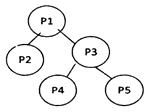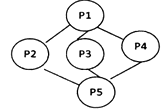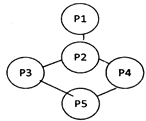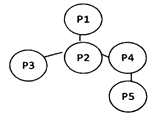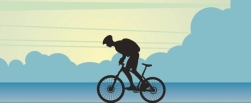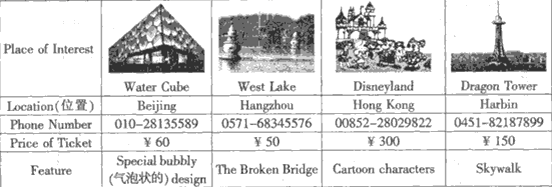��Ŀ����
����Ŀ�����ĸĴ�
�ٶ�Ӣ�������ʦҪ��ͬ��֮�佻�������ģ���������ͬ��д���������ġ����й���10�����Դ���ÿ���������������ÿ��������漰һ�����ʵ����ӡ�ɾ�����ġ�
���ӣ���ȱ�ʴ���һ��©�ַ���(![]() )������������д���üӵĴʡ�
)������������д���üӵĴʡ�
ɾ�����Ѷ���Ĵ���б��(��)������
�ģ��ڴ��Ĵ��»�һ���ߣ����ڸô�����д���ĺ�Ĵʡ�
ע�⣺1. ÿ���������ľ�����һ�ʣ�
2. ֻ������10�������ߣ��ӵ�11���𣩲��Ʒ֡�
It is reported that thirty cellpones taken away by teachers during the examination and were smashed(�۴�) in front of students and parents at a high school. As to this, we hold a heated discussion the other day. There are two different viewpoints about them.
Some think it necessarily. Firstly, with cellphones, students would have focused their attention on studying instead of wasting their precious time reading junk message. Secondly, the examination will be fair if no one cheats by using cellphones. However, the others don��t think so. For one thing, at the age of information, cellphones have become a necessity. For another, students can use cellpones for study.
Personal speaking, even if some students use cellphones for no good reason, we should educate them more than destroy cellphones in such an extreme way.
���𰸡�
��1����cellphones �� taken֮���were
��2��hold---held
��7��them---it
��3��necessarily--- necessary
��4��with--- without
��5��message--- messages
��6��ȥ��the others�е�the
��8��at---in
��9��Personal--- Personally
��10��more--- rather
��������
��1����cellphones �� taken֮���were cellphones��taken away֮���DZ�����ϵ���ڸ��ݺ����were����֪�˴���һ���ȥʱ̬�ı�����̬������cellphones �� taken֮���were��
��2��hold---held the other day����ǰ����֪��һ���ȥʱ̬���ʰ�hold---held��
��7��them---it ���⣺�����������������ͬ����Ƶ���ʰ�them---it��
��3��necessarily--- necessary ���⣺һЩ����Ϊ�DZ�Ҫ�ġ����ݴ������������ﲹ����ʰ�necessarily--- necessary ��
��4��with--- without �˴�����������������û���ֻ���ѧ�����Ἧ�о�����ѧϰ�ϡ����ʰ�with--- without��
��5��message--- messages message�ǿ������ʣ����Ķ�������Ϣ�����ʰ�message--- messages��
��6��ȥ��the others�е�the some---��others---һЩ---����һЩ����ȥ��the others�е�the��
��8��at---in �̶����䣺in the age of---����---ʱ�����ʰ�at---in��
��9��Personal--- Personally ��������ṹ�������������ڷִʣ��ʰ�Personal--- Personally��
��10��more--- rather ���⣺����Ӧ�ý������Ƕ����ǻٵ����ǵ��ֻ���rather than�����ǣ��ʰ�more--- rather��

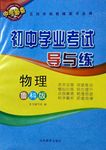 ����ѧҵ���Ե�����ϵ�д�
����ѧҵ���Ե�����ϵ�д�